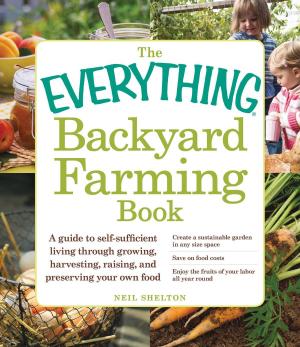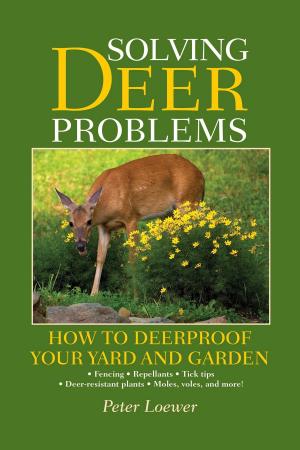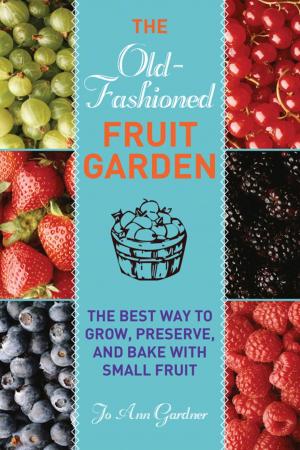Vegetable Gardening the Colonial Williamsburg Way
18th-Century Methods for Today's Organic Gardeners
Nonfiction, Home & Garden, Gardening, Garden Design, Vegetables, Techniques| Author: | Wesley Greene | ISBN: | 9781609611637 |
| Publisher: | Potter/Ten Speed/Harmony/Rodale | Publication: | February 14, 2012 |
| Imprint: | Rodale Books | Language: | English |
| Author: | Wesley Greene |
| ISBN: | 9781609611637 |
| Publisher: | Potter/Ten Speed/Harmony/Rodale |
| Publication: | February 14, 2012 |
| Imprint: | Rodale Books |
| Language: | English |
From the nation's foremost historical preservation site comes a guide to traditional—and still relevant—methods and advice for planting and tending a productive vegetable garden
In a colonial-style garden, the broccoli is purple and "turkey" cucumbers grow to three feet long; oiled paper predates plastic for sheltering spring plants; and fermenting manure warms the seedlings. Finding inspiration and value in 18th-century plants, tools, and techniques, the gardeners at Colonial Williamsburg have discovered that these traditional vegetable-growing methods are perfectly at home in today's modern organic gardens. After all, in the 18th century, organic gardening was the only type of gardening and local produce the only produce available.
Author Wesley Greene founded the Colonial Garden in Colonial Williamsburg's Historic Area in 1996. He and his colleagues have painstakingly researched the ways the colonists planted and tended their vegetable and herb beds, most of which are more relevant than ever. Along with historical commentary and complete growing instructions for 50 delicious vegetables, including colonial varieties still available today, gardeners and folklorists will find weather-watching guidelines, planting techniques, and seedsaving advice for legumes, brassicas, alliums, root crops, nightshades, melons, squash, greens, and other curious and tender produce.
From the nation's foremost historical preservation site comes a guide to traditional—and still relevant—methods and advice for planting and tending a productive vegetable garden
In a colonial-style garden, the broccoli is purple and "turkey" cucumbers grow to three feet long; oiled paper predates plastic for sheltering spring plants; and fermenting manure warms the seedlings. Finding inspiration and value in 18th-century plants, tools, and techniques, the gardeners at Colonial Williamsburg have discovered that these traditional vegetable-growing methods are perfectly at home in today's modern organic gardens. After all, in the 18th century, organic gardening was the only type of gardening and local produce the only produce available.
Author Wesley Greene founded the Colonial Garden in Colonial Williamsburg's Historic Area in 1996. He and his colleagues have painstakingly researched the ways the colonists planted and tended their vegetable and herb beds, most of which are more relevant than ever. Along with historical commentary and complete growing instructions for 50 delicious vegetables, including colonial varieties still available today, gardeners and folklorists will find weather-watching guidelines, planting techniques, and seedsaving advice for legumes, brassicas, alliums, root crops, nightshades, melons, squash, greens, and other curious and tender produce.















